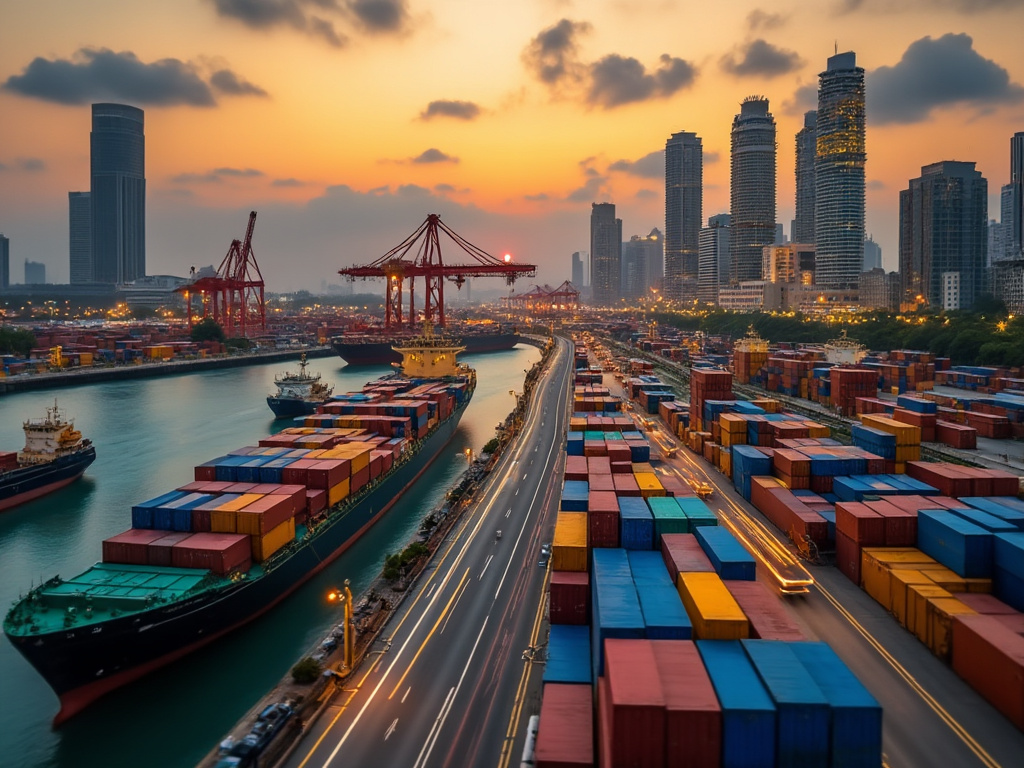
Singapore's Prime Minister criticizes US tariffs while Malaysia warns of potential export slowdown, as China takes measures to stabilize its capital market.
In a strong parliamentary address on Tuesday, Singapore's Minister Lawrence Wong criticized the recent tariff imposed by the United States on imports from Singapore, stating that the actions are "not actions one does to a friend." He emphasized the historical trade ties between Singapore and the US and argued that such tariffs represent a departure from the principles of free trade that the US has long championed.
The US has recently imposed a 10 percent tariff on all global imports, which applies to Singapore as well.
Wong pointed out that the US enjoyed a trade surplus of US$2.8 billion with Singapore in 2024, an 84.8 percent increase from the previous year, with two-way trade reaching US$89.2 billion.
He noted that if the tariffs were genuinely reciprocal, Singapore’s tariff rate should be zero.
Wong warned that these tariffs mark a significant turning point in global trade, moving the world away from rules-based globalization and towards a potentially more arbitrary and protectionist era.
He highlighted concerns regarding China's World Trade Organization (WTO) practices and stressed the need for addressing unfair trade practices within WTO frameworks rather than through unilateral tariffs.
In Malaysia, officials issued a warning regarding the mid-to-long-term impacts of the US tariff increases, which could slow down exports to the US and affect inbound investment.
Tariffs ranging from 24 percent to 49 percent are set to be levied on various goods from over half of the ten Association of Southeast Asian Nations (ASEAN) members.
Malaysian Trade Minister Tengku Zafrul Abdul Aziz noted that although semiconductors—a key export—are exempt from tariffs, many other sectors, including machinery, furniture, and plastics, face significant impacts from the tariff regime.
In response to these tensions, the Chinese government expressed its disapproval of the US's threat to impose additional tariffs of up to 50 percent on goods from China, characterizing the proposal as a mistake.
The Chinese commerce ministry has urged the US to retract what it considered unilateral tariffs and advocated for resolution through dialogue based on mutual respect.
Concurrently, major state-owned Chinese corporations have announced initiatives to stabilize market operations amid these trade tensions.
Key financial players, including Central Huijin Investment Ltd. and others, are undertaking measures to boost their holdings in Exchange-Traded Funds (ETFs) as part of a coordinated response to market volatility.
The People's Bank of China has expressed support for these stabilization efforts, pledging to provide adequate re-lending support to facilitate market stability.
These developments reflect broader concerns regarding trade practices and economic relationships among the US, Singapore, Malaysia, and China, as nations navigate through rising protectionism and the changing landscape of global trade.
The US has recently imposed a 10 percent tariff on all global imports, which applies to Singapore as well.
Wong pointed out that the US enjoyed a trade surplus of US$2.8 billion with Singapore in 2024, an 84.8 percent increase from the previous year, with two-way trade reaching US$89.2 billion.
He noted that if the tariffs were genuinely reciprocal, Singapore’s tariff rate should be zero.
Wong warned that these tariffs mark a significant turning point in global trade, moving the world away from rules-based globalization and towards a potentially more arbitrary and protectionist era.
He highlighted concerns regarding China's World Trade Organization (WTO) practices and stressed the need for addressing unfair trade practices within WTO frameworks rather than through unilateral tariffs.
In Malaysia, officials issued a warning regarding the mid-to-long-term impacts of the US tariff increases, which could slow down exports to the US and affect inbound investment.
Tariffs ranging from 24 percent to 49 percent are set to be levied on various goods from over half of the ten Association of Southeast Asian Nations (ASEAN) members.
Malaysian Trade Minister Tengku Zafrul Abdul Aziz noted that although semiconductors—a key export—are exempt from tariffs, many other sectors, including machinery, furniture, and plastics, face significant impacts from the tariff regime.
In response to these tensions, the Chinese government expressed its disapproval of the US's threat to impose additional tariffs of up to 50 percent on goods from China, characterizing the proposal as a mistake.
The Chinese commerce ministry has urged the US to retract what it considered unilateral tariffs and advocated for resolution through dialogue based on mutual respect.
Concurrently, major state-owned Chinese corporations have announced initiatives to stabilize market operations amid these trade tensions.
Key financial players, including Central Huijin Investment Ltd. and others, are undertaking measures to boost their holdings in Exchange-Traded Funds (ETFs) as part of a coordinated response to market volatility.
The People's Bank of China has expressed support for these stabilization efforts, pledging to provide adequate re-lending support to facilitate market stability.
These developments reflect broader concerns regarding trade practices and economic relationships among the US, Singapore, Malaysia, and China, as nations navigate through rising protectionism and the changing landscape of global trade.























